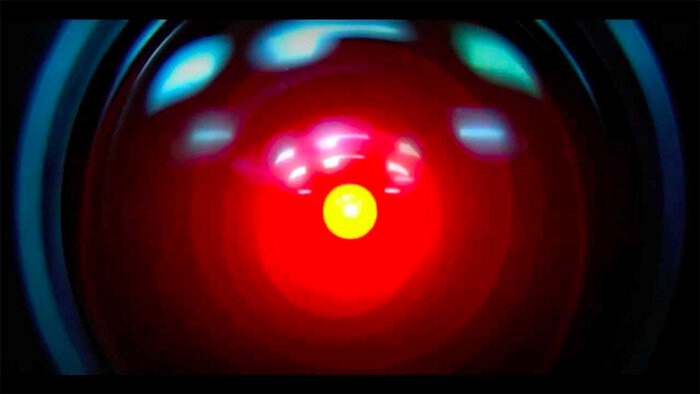- The Tools
The Tools of Your Trade
What is SimplerWork
Find out Find out
all about?
- Pricing
- About
- AI Insights

But do you even know what creativity and reasoning are? We went from AI isn’t creative to debating if 95/100 on some AGI test makes humans obsolete in 6 months. What are we even talking about? Before we start comparing humans and machines, shouldn’t we figure out what we’re measuring?
We throw around words like thinking, reasoning, and creativity, but half the time, we’re talking past each other. And don’t get me started on people who refer to themselves as ‘a creative’ — we’ve been fighting pronoun wars for years, and we all missed the only universal pronoun crime. Creativity is the highest order of human cognition, and it’s used as an excuse for not thinking.
So let’s break this down a bit. Let’s figure out what these concepts actually mean, and then we can see where both humans and AI really stand.
Thinking vs Reasoning in a Car That Won’t Start
It’s Tuesday morning. Monday was yesterday and you were late for work, which made your boss hiss some passive-aggressive comments again. Not today though, no way. You woke up extra early and you have a few minutes to spare. You grab your coffee, get in the car, turn the key, and… silence. Nothing. Like an idiot, you try again, like there’s more than one way to turn a key. Now you’re staring at the dashboard, your heart sinks, and feelings start to build up. It feels like someone sat on your chest and your blood pressure spiked so fast that your ears ring.

Thinking: Storing, Processing, and Retrieving Information
Your brain jumps into action: I turned the key. Engine isn’t doing BRRRRR. Something’s wrong. That’s basic thinking at work. Your brain processed what just happened, compared it to your past experiences, and flagged that this situation does not, in fact, belong in the everything is fine bucket.
Thinking, in its most basic form, processes information and detects inconsistencies. But it doesn’t tell you much beyond something’s up. Reasoning, though? That’s where things get interesting.
Reasoning: Thinking with Purpose
The next logical step: No BRRRR means the engine isn’t running, which means this car is not taking me to work right now. That’s deductive reasoning. You deduce a direct conclusion from available information.
Maybe by now, your brain is jumping ahead to Oh god, two days late in a row, I’m either getting roasted or fired. That’s cross-domain reasoning kicking in — connecting seemingly unrelated concepts (car problems → job security → existential crisis). Because you, my friend, are creative. But hold that thought, we’re still in problem-solving mode.
If panic hasn’t hijacked your brain yet, reasoning shifts into decision-making and troubleshooting: Why isn’t the car starting? Could it be the battery? Did I leave the lights on last night? The difference between guessing and actually solving the problem now depends on one crucial trait: the tools in your mental toolbox.

Your Mental Model: What You Know
Your mental model is the sum of everything you’ve learned about how something works.
When your car doesn’t start, your mental model might be as simple as: turn the key = engine goes brrrrrrrr. If not, pop the hood and stare at the engine like it owes you an explanation.
A mechanic’s mental model is way more developed. They get annoyed when someone describes it as car doesn’t start. What does that mean? Did the dashboard light up? Did the relay click? Did the starter motor turn? They hear immediately start mentally sorting through a probability tree: Battery empty? Alternator issue? Fuel pump? Starter motor? Fuses? They’re not blindly guessing; they’re running a structured elimination process.
Your mental model? Surface-level at best. The mechanic’s? A deep, layered knowledge base built from training, experience, and pattern recognition.
But knowledge alone isn’t enough. Solutions come when you test ideas.
Applying Hypothetical Thinking to Your Model
The mechanic forms a list of hypotheses, prioritizes them, and tests them one by one. Each test confirms or rejects a hypothesis, and new data collected from tests may form a new hypothesis. A mechanic will never pop the hood before turning the key because if the dashboard doesn’t light up, that narrows the list of potential solutions from 100 to 2.
Hypothetical thinking is the key to good reasoning: forming ideas, testing them, and refining based on results. Without it, you’re just poking things and hoping for the best.
Let’s Be Honest: AI Already Knows More Than You Do
AI’s mental model is basically all of the internet. Unless you’re discovering things brand new to humanity, AI already knows more than you do about pretty much everything. Harsh? Maybe.
Remember that car that wouldn’t start? AI knows more about engines than any mechanic ever could. It’s got every service manual, every diagnostic flowchart, every forum post from 2003 where someone was asking strangers on the internet how to diagnose “turned key no BRRRRR”. While your mechanic is still on hypothesis #2, a future AI model could likely pinpoint the problem in seconds.
And it doesn’t stop there. AI excels at reasoning too. Deductive, inductive, abductive — it can crunch probabilities and generate hypotheses. It can analyze trends, test theories, and even simulate outcomes.

AI can reason circles around us — but it still can’t do what you did two seconds after the car didn’t start: get creative.
What is Creativity?
AI could diagnose the car issue and even call for a tow truck, but that’s not your real problem. Your real problem was never the car — or even being late. It was your boss being angry. That’s the thing that gave you an anxiety punch and that’s the thing you start to work on.
You can call a coworker that lives nearby to see if they can give you a ride. You could send an email right away to make everyone aware as soon as possible. You could reschedule your morning meeting. You could offer to work late to make up the time.
Creative re-contextualization makes you step back, focus on the primary problem, and ask: What’s the real goal here? If the goal is keeping your boss happy, you reach into a different mental model that has nothing to do with sparkplugs. You’re now solving company process issues, emotional states, interpersonal relationships, and any other aspect that influences your job security this morning.
None of these solutions involve fixing the car — but they fix your main problem. That’s creativity.
Tomorrow’s AI Will Be Different (But So Will We)
Look, AI is advancing at a ridiculous pace. But it still can’t do that weird human thing where we look at a problem and think, Wait, are we even asking the right question?
So instead of stressing over what AI can or can’t do, maybe we should focus on what makes us… well, us:
- Redefining the problem: The human ability to question assumptions and redefine the problem itself, not just solve it.
- Connecting the unconnected: Making creative leaps by linking unrelated ideas in ways no algorithm would predict.
- Challenging the premise: Asking ‘why’ and exploring the motivations behind the question — not just generating answers.
This isn’t just philosophy — it’s strategy. In a world where AI does more of the heavy lifting, thinking differently isn’t just a perk. It’s your competitive advantage.
Trying to out-compute AI is like trying to out-lift a crane. Instead, focus on the strange, creative, unpredictable ways humans think.
So here’s the real question: Are you exercising that weird human brain of yours? Because pretty soon, that might just be the only advantage you’ve got.





